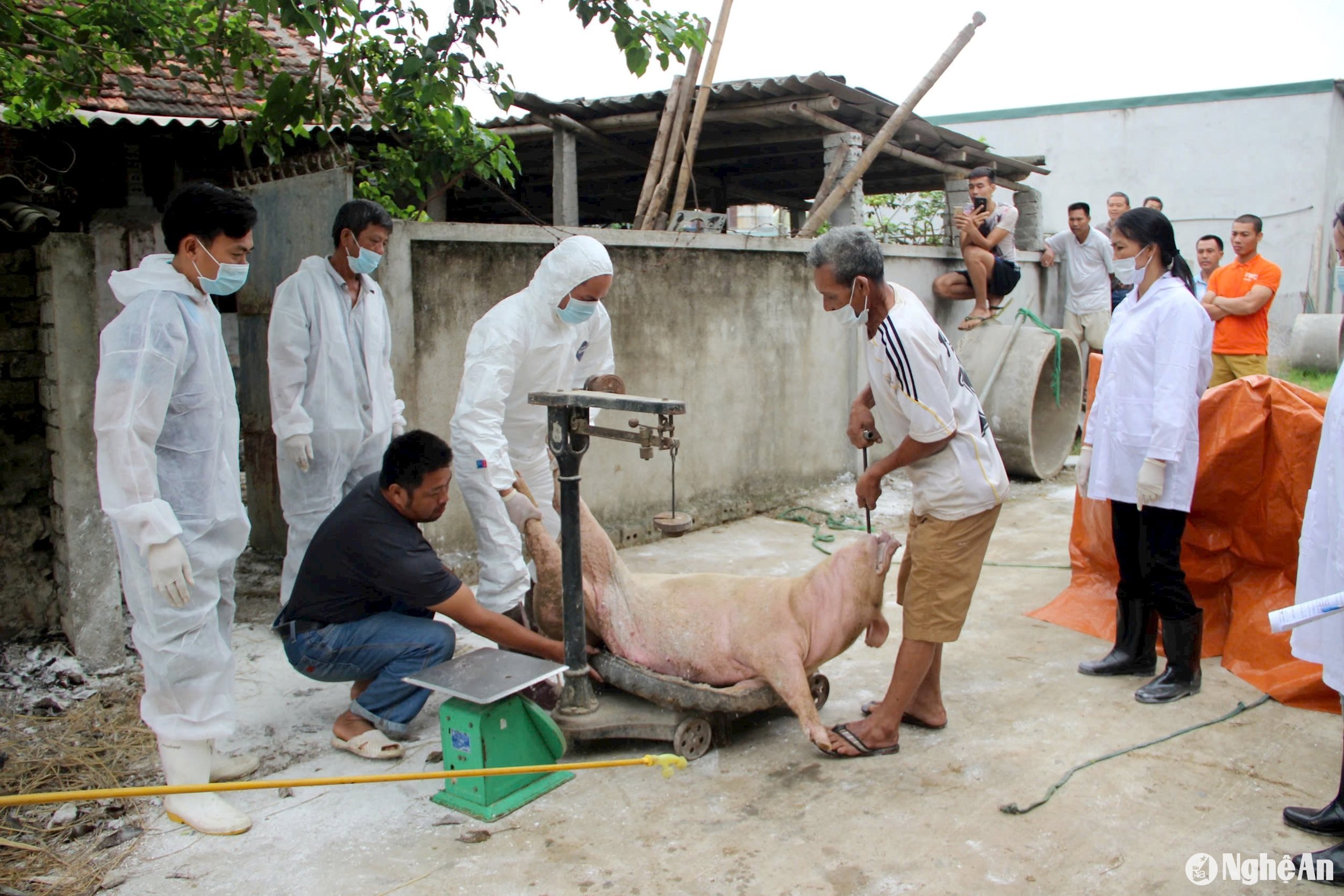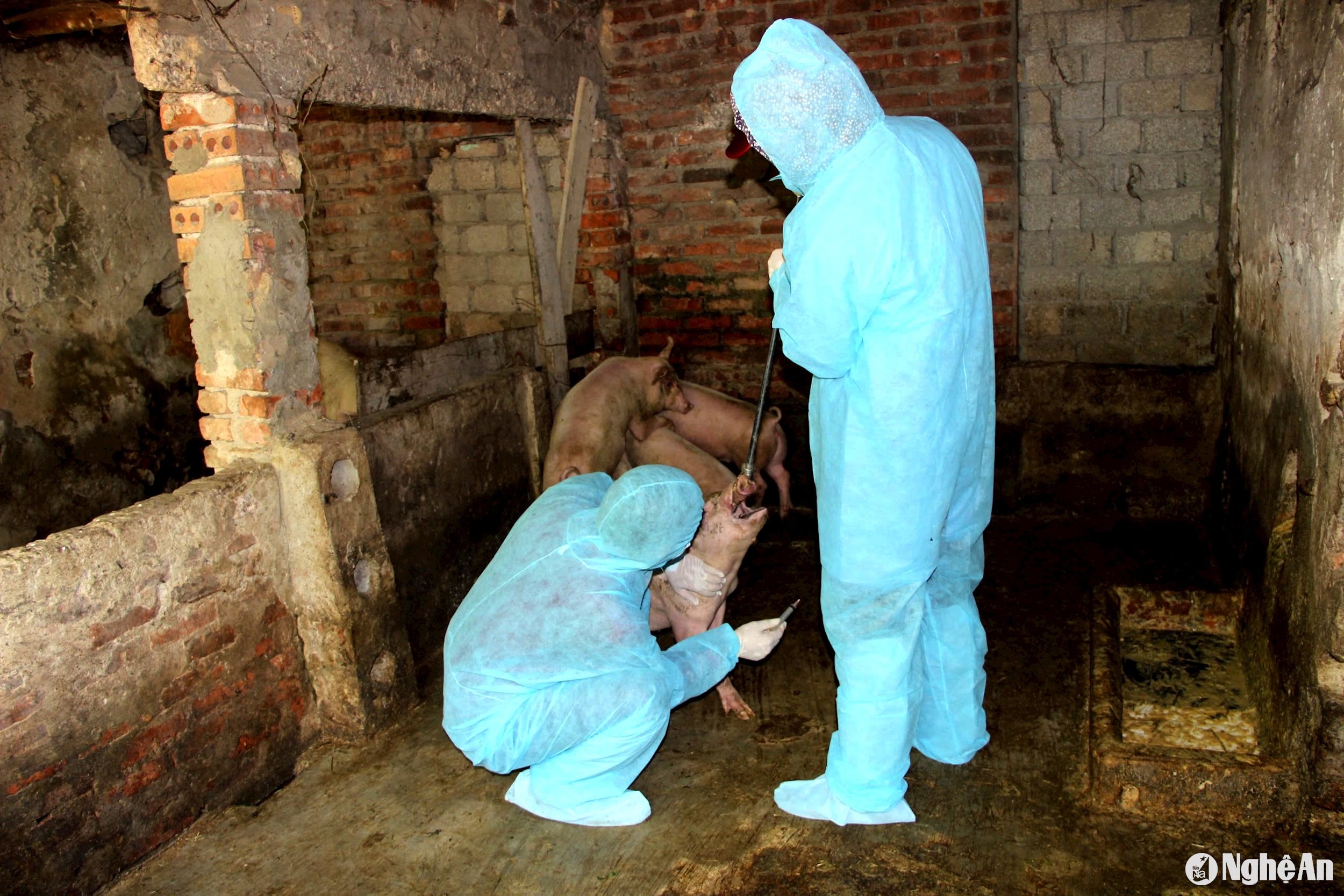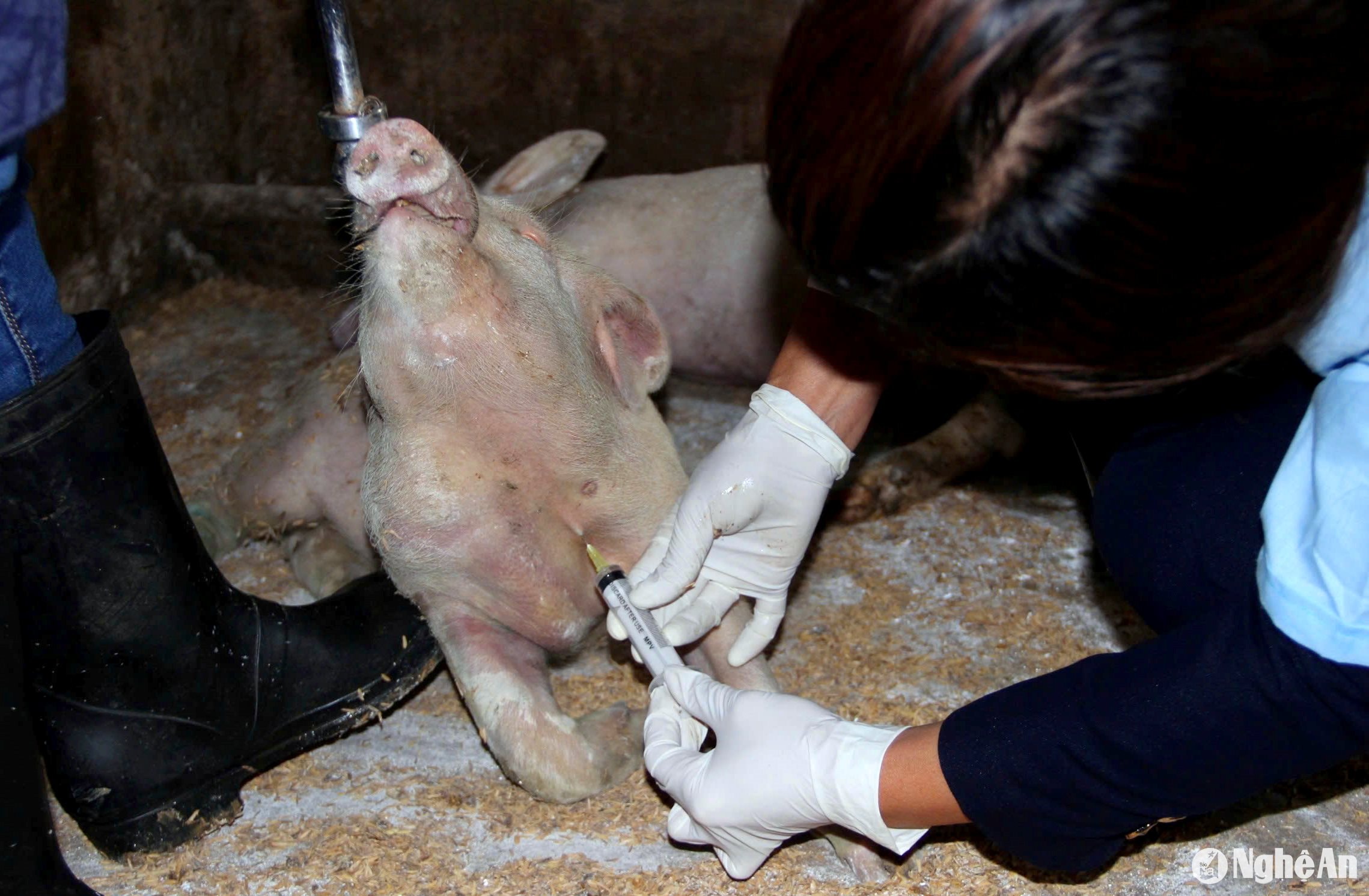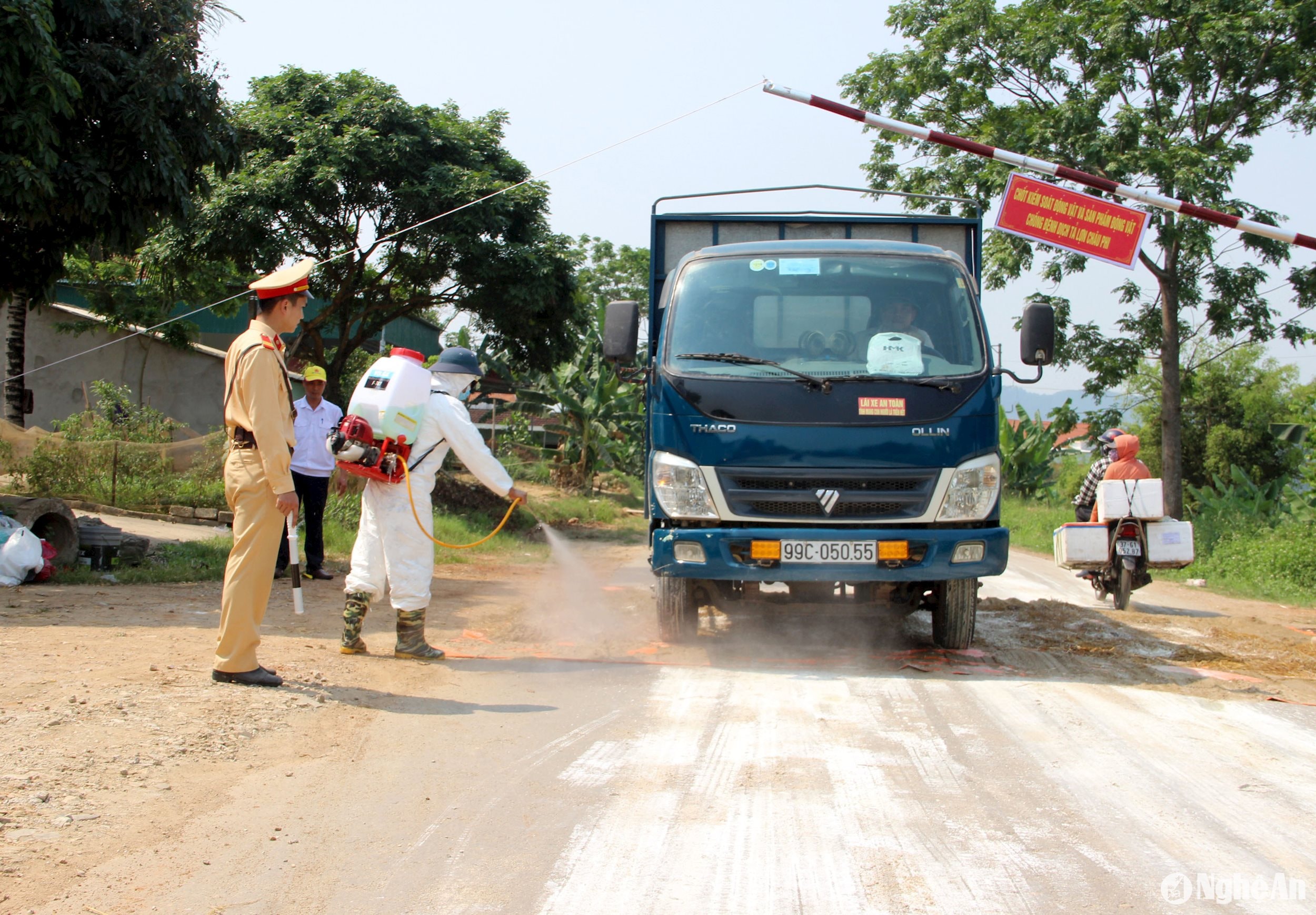Why is the vaccination rate against African swine fever in Nghe An low?
Vaccination is considered the most effective method to prevent the spread of African swine fever, but in reality, the vaccination rate in Nghe An is very low.
African swine fever broke out strongly from mid-2024. Up to now, although the epidemic has basically cooled down, the damage caused to farmers is very large. According to statistics from the Provincial Department of Animal Husbandry and Veterinary Medicine, since the beginning of the year, the whole province has had more than 250 outbreaks of African swine fever, forcing the destruction of more than 10,000 pigs, with a total weight of over 400 tons, causing billions of dong in damage.

Besides solutions of zoning, destroying sick pigs, setting up quarantine checkpoints or disinfecting, vaccination is considered the most optimal solution to protect the herd and prevent the spread of the disease.
However, in reality, the vaccination rate against African swine fever in Nghe An is very low. According to statistics, the whole province has about 1 million pigs, but from 2024 to now, only more than 6,000 doses of vaccine have been injected.
Specifically, the localities that have been vaccinated include: Do Luong 1,110 doses, Nam Dan 230 doses, Dien Chau 120 doses, Yen Thanh 1,395 doses, Thanh Chuong 80 doses, Nghi Loc 80 doses, Hung Nguyen 550 doses, Quy Chau 100 doses, Vinh City 10 doses, Anh Son 10 doses, Quynh Luu 10 doses... In addition, farms and cooperatives in the province have also ordered vaccines for vaccination with a quantity of more than 2,300 doses. It can be seen that this is a very modest number compared to the total pig herd in the area.

For example, in Tan Ky district, according to the report of the district's Agricultural Service Center, the total pig herd in the area is about 65,000, however, no household has been vaccinated against the disease. From September 2024 to now, African swine fever has occurred in 47 households in 7 communes, requiring the destruction of more than 400 pigs, with a total weight of over 24 tons.
In Anh Son district, although it is the locality with the most complicated epidemic developments in the province, the number of pigs vaccinated can be counted on the fingers.
In 2023, the whole province will only be able to inject 1,728 doses of African swine fever vaccine in 4 districts: Que Phong, Quy Chau, Hung Nguyen and Yen Thanh.

There are many reasons for the low vaccination rate against African swine fever. First of all, this vaccine is only given to qualified pigs. Specifically, the AVAC ASF LIVE vaccine of AVAC Vietnam Joint Stock Company is used for pigs 4 weeks old and older; the NAVET-ASFVAC vaccine of NAVETCO Veterinary Medicine Joint Stock Company is for pigs 8-10 weeks old; these vaccines are not given to sows and boars.
In addition, these are also new vaccines with high prices (average 60,000 VND/dose). While recently, livestock farming costs have increased, many farmers have suffered losses, and the epidemic situation has not stabilized, many people do not want to invest. Many livestock farm owners are still skeptical about the effectiveness, protection, and immunity of vaccines. Localities do not have a support mechanism for farmers to get vaccinated; post-vaccination risk support policies are unclear. In particular, authorities have not yet included African swine fever vaccines in the mandatory vaccination program and plan like vaccines for classical swine fever, foot-and-mouth disease, etc.
Mr. Nguyen Van Thanh - owner of a farm in Dien Chau district said: His family has more than 100 pigs, with a cost of more than 60,000 VND/dose, if the whole herd is vaccinated, it will cost more than 6 million VND, which is not a small amount of money. Therefore, the family has not vaccinated all at once but mainly tightened epidemic prevention measures according to the instructions of the authorities.

According to the Provincial Department of Animal Husbandry and Veterinary Medicine, the current erratic weather and humid air create favorable conditions for pathogens to develop and spread, the price of live pigs is high, especially the demand for pork during Tet is very high, so small-scale farmers tend to re-herd. The risk of disease recurrence and widespread spread is still very high.
Vaccination is a very important measure, farmers should be encouraged to invest to protect the herd and prevent the spread of disease. At the same time, it should be combined with other measures such as: Ensuring biosafety in livestock farming, supplementing antibodies, disinfecting barns...


